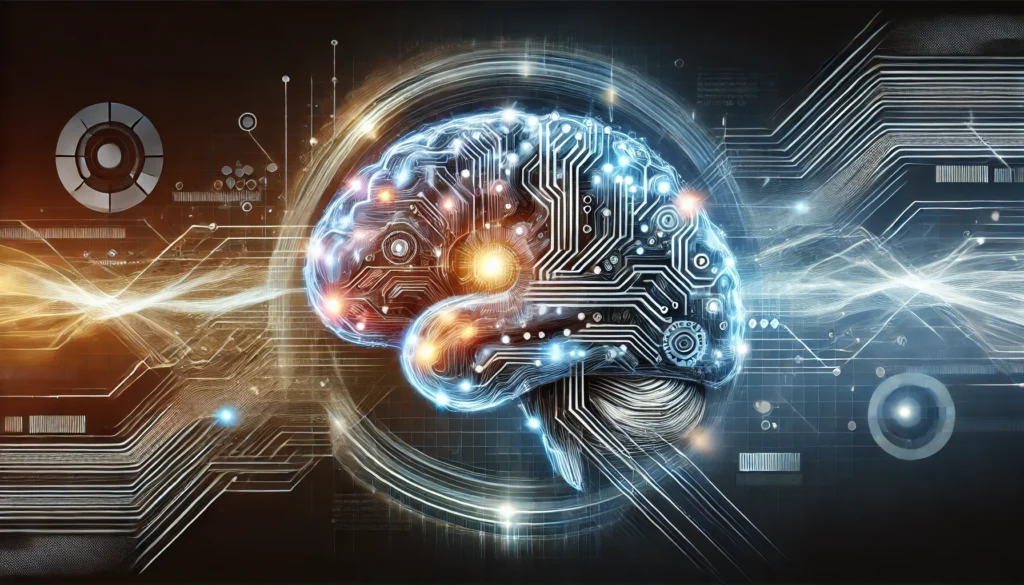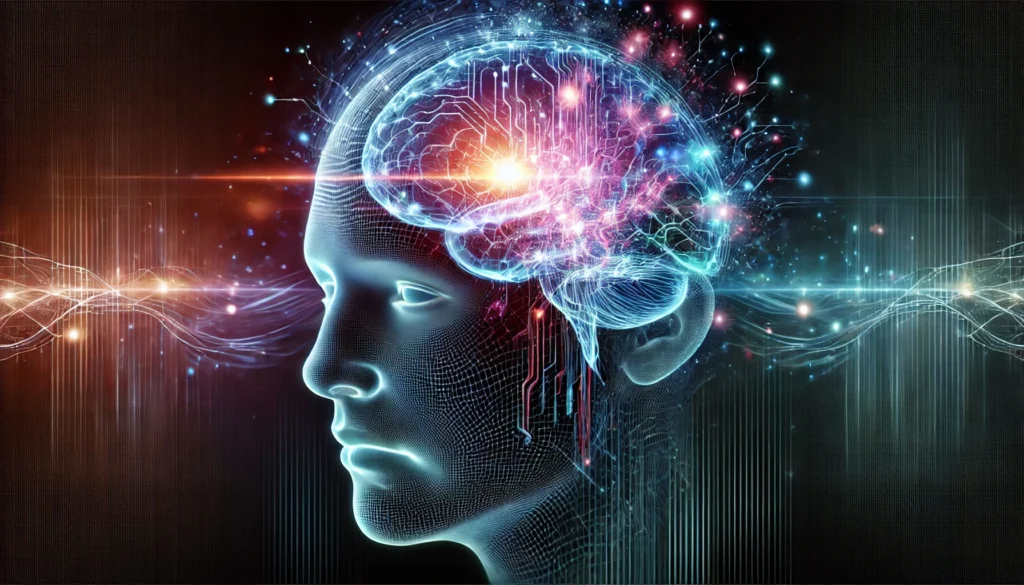The human brain is an intricate and powerful organ, constantly working to process information, control bodily functions, and shape our thoughts and emotions. In an era where mental acuity is more important than ever, optimizing brain performance has become a focal point for many individuals. Whether you’re a health and wellness coach, science journalist, or biohacker, understanding the methods to enhance cognitive function is crucial. This article delves into the science of brain optimization, offering practical techniques to unlock advanced brain power.
You may also like: Boost Your Mind: Top Brain Games
The Science Behind Brain Optimization
Brain optimization involves enhancing mental processes such as memory, concentration, and cognitive flexibility. The foundation of this endeavor lies in neuroplasticity, the brain’s ability to reorganize itself by forming new neural connections. This adaptability is crucial for learning and memory, allowing us to continuously improve our mental capabilities.
Neuroplasticity: The Brain’s Adaptability
Neuroplasticity is the brain’s inherent ability to change and adapt in response to experience and learning. This remarkable capacity allows the brain to rewire itself, forming new pathways and strengthening existing ones. Activities that challenge the brain, such as learning a new language or musical instrument, can enhance neuroplasticity. By engaging in these activities, individuals can improve their cognitive functions, creating a more adaptable and resilient brain.
Historical Context and Current Trends
Historically, the quest for enhanced brain power can be traced back to ancient civilizations that used various herbs and practices to boost mental clarity. Today, the field has expanded exponentially with the advent of neuroscience and technology. Modern trends focus on a combination of lifestyle changes, technological interventions, and nutraceuticals to achieve cognitive enhancement. As scientific understanding of the brain grows, new methods and trends continue to emerge, offering fresh perspectives on brain optimization.
Neuroscience: The Foundation of Understanding
Advancements in neuroscience have revolutionized our understanding of the brain and its functions. Through techniques such as brain imaging and electrophysiology, scientists can observe brain activity in real-time, shedding light on how different regions communicate and process information. These insights are crucial for developing effective strategies to enhance cognitive function. By understanding the brain’s inner workings, we can create targeted interventions to improve memory, attention, and overall mental performance.
The Role of Nootropics
Nootropics, or “smart drugs,” have gained popularity as substances that can improve cognitive function, particularly executive functions, memory, creativity, or motivation. While some, like caffeine and L-theanine, are well-known and widely used, others require more scientific scrutiny. It’s essential to approach nootropics with a critical eye, understanding their potential benefits and limitations through advanced brain power reviews. As research in this area continues, new nootropics and formulations are emerging, promising to enhance cognitive performance with minimal side effects.
Techniques for Boosting Brain Power
1. Mindfulness and Meditation
Mindfulness and meditation practices are powerful tools for brain optimization. Research indicates that regular meditation can increase gray matter in the brain, improve focus, and reduce stress—an essential factor in maintaining optimal cognitive function. Incorporating mindfulness into daily routines can lead to lasting improvements in mental clarity and emotional regulation.
The Science of Mindfulness
Mindfulness involves paying attention to the present moment without judgment, a practice that has profound effects on the brain. Studies show that mindfulness can enhance attention, emotional regulation, and even physical health. By regularly practicing mindfulness, individuals can cultivate a more focused and resilient mind, capable of navigating the challenges of daily life with ease.

Meditation Techniques for Cognitive Enhancement
Various meditation techniques, such as focused attention, loving-kindness, and transcendental meditation, offer unique benefits for cognitive enhancement. Focused attention meditation, for instance, trains the mind to concentrate on a single object or thought, improving attention span and reducing distractions. Meanwhile, loving-kindness meditation fosters positive emotions and empathy, creating a more balanced and harmonious mental state.
Incorporating Mindfulness into Daily Life
Incorporating mindfulness into daily routines doesn’t require significant time or effort. Simple practices, such as mindful breathing or mindful eating, can be seamlessly integrated into everyday activities. By dedicating just a few minutes each day to mindfulness, individuals can experience a profound shift in their mental state, leading to enhanced clarity, focus, and emotional well-being.
2. Physical Exercise
Physical activity is not only beneficial for the body but also crucial for brain health. Exercise increases blood flow to the brain, promoting the growth of new neurons and enhancing synaptic plasticity. Activities such as aerobic exercises, yoga, and even short walks can significantly improve memory and executive function, making them indispensable for achieving advanced brain power.
Aerobic Exercise: Fuel for the Brain
Aerobic exercises, such as running, cycling, or swimming, are particularly effective in boosting brain health. These activities increase heart rate, improving blood flow and oxygen delivery to the brain. Regular aerobic exercise has been shown to enhance memory, attention, and overall cognitive function, making it a cornerstone of any brain optimization routine.
Strength Training and Cognitive Benefits
While aerobic exercises are often emphasized for brain health, strength training also offers significant cognitive benefits. Research indicates that resistance exercises can improve executive functions, such as planning and decision-making. By incorporating strength training into a fitness routine, individuals can enjoy a well-rounded approach to brain and body health.
Yoga and Mind-Body Connection
Yoga combines physical movement with mindfulness, offering a holistic approach to brain optimization. The practice of yoga enhances flexibility, balance, and strength while promoting relaxation and stress reduction. By fostering a strong mind-body connection, yoga can improve mental clarity, emotional regulation, and overall well-being.
3. Nutrition and Hydration
The brain requires a steady supply of nutrients and hydration to function at its best. A diet rich in omega-3 fatty acids, antioxidants, and essential vitamins supports cognitive health. Foods like fatty fish, berries, nuts, and leafy greens should be staples in a brain-boosting diet. Additionally, staying hydrated is vital, as even mild dehydration can impair cognitive performance.
Omega-3 Fatty Acids: Essential for Brain Health
Omega-3 fatty acids, found in foods like salmon, flaxseeds, and walnuts, are crucial for maintaining brain health. These essential fats support the structure of brain cells and play a role in reducing inflammation. Incorporating omega-3-rich foods into your diet can enhance memory, focus, and overall cognitive function.
Antioxidants: Protecting the Brain
Antioxidants, such as vitamins C and E, help protect the brain from oxidative stress and free radical damage. Consuming a diet rich in antioxidant-rich foods, like berries, dark chocolate, and green tea, can support brain health and improve mental performance. By reducing oxidative stress, antioxidants contribute to a healthier and more resilient brain.
Hydration: The Unsung Hero of Cognitive Performance
Proper hydration is essential for optimal brain function, as even slight dehydration can impact cognitive performance. Drinking enough water throughout the day supports concentration, memory, and overall mental clarity. To ensure adequate hydration, aim to drink at least eight glasses of water daily, and consider consuming water-rich foods like fruits and vegetables.
4. Sleep Optimization
Quality sleep is fundamental to brain health, allowing for memory consolidation and the removal of neurotoxic waste. Sleep optimization involves maintaining a consistent sleep schedule, creating a restful environment, and minimizing blue light exposure before bedtime. Techniques such as these ensure the brain is well-rested and ready to perform at its peak.
The Importance of Sleep for Brain Health
Sleep is essential for various brain functions, including memory consolidation, emotional regulation, and waste clearance. During deep sleep, the brain undergoes a process of synaptic pruning, strengthening important neural connections while eliminating unnecessary ones. Ensuring adequate sleep is crucial for maintaining a sharp and efficient brain.
Creating a Sleep-Friendly Environment
A conducive sleep environment is vital for achieving restful and restorative sleep. Factors such as room temperature, lighting, and noise levels can significantly impact sleep quality. By creating a calm and comfortable sleeping space, individuals can enhance their sleep experience and support optimal brain health.
Sleep Hygiene Practices for Better Rest
Adopting good sleep hygiene practices can improve sleep quality and, consequently, cognitive performance. Strategies like establishing a regular sleep schedule, limiting caffeine and alcohol intake, and practicing relaxation techniques before bed can promote better sleep. By prioritizing sleep hygiene, individuals can ensure their brains are well-rested and ready to tackle the day’s challenges.
5. Cognitive Training
Engaging in activities that challenge the brain is essential for maintaining and improving cognitive function. Puzzles, strategy games, and learning new skills or languages can enhance neuroplasticity and cognitive reserve. By regularly pushing cognitive boundaries, individuals can unlock new levels of advanced brain power.
The Power of Puzzles and Games
Puzzles and games offer a fun and engaging way to challenge the brain and enhance cognitive function. Activities like crosswords, Sudoku, and chess stimulate different areas of the brain, promoting memory, problem-solving, and strategic thinking. By incorporating these activities into daily routines, individuals can improve mental agility and cognitive performance.
Learning New Skills: A Path to Cognitive Growth
Learning new skills or hobbies, such as playing a musical instrument or taking up a new sport, can have profound effects on cognitive function. These activities engage multiple brain regions, promoting neuroplasticity and cognitive reserve. By continually seeking out new learning opportunities, individuals can maintain a sharp and adaptable mind.
Language Acquisition and Brain Benefits
Learning a new language is a powerful way to enhance brain function and cognitive flexibility. Language acquisition engages areas of the brain responsible for memory, attention, and problem-solving. By challenging the brain in this way, individuals can improve their cognitive abilities and potentially delay the onset of age-related cognitive decline.
Emerging Technologies in Brain Enhancement
The intersection of neuroscience and technology has given rise to innovative methods for brain optimization. Brain-computer interfaces, transcranial magnetic stimulation, and virtual reality cognitive training are some of the cutting-edge approaches being explored. These technologies hold the potential to revolutionize how we enhance and understand brain function, offering exciting possibilities for the future.
Brain-Computer Interfaces: Bridging Mind and Machine
Brain-computer interfaces (BCIs) represent a groundbreaking advancement in the field of brain enhancement. BCIs allow direct communication between the brain and external devices, offering new possibilities for cognitive augmentation. By harnessing the power of BCIs, individuals can potentially control technology with their thoughts, opening up new avenues for brain optimization and rehabilitation.
Transcranial Magnetic Stimulation: A Non-Invasive Approach
Transcranial magnetic stimulation (TMS) is a non-invasive technique that uses magnetic fields to stimulate specific areas of the brain. TMS has shown promise in treating various neurological and psychiatric conditions, as well as enhancing cognitive function. By targeting specific brain regions, TMS can modulate neural activity, offering a novel approach to brain optimization.
Virtual Reality: Immersive Cognitive Training
Virtual reality (VR) offers an immersive and interactive platform for cognitive training and rehabilitation. VR environments can be tailored to challenge specific cognitive functions, such as memory, attention, and problem-solving. By engaging users in realistic and dynamic scenarios, VR has the potential to enhance brain plasticity and cognitive performance in ways traditional methods cannot.

Practical Advice for Everyday Brain Optimization
For those looking to integrate brain optimization techniques into daily life, consistency is key. Start with small, manageable changes, such as incorporating a 10-minute meditation practice or swapping sugary snacks for brain-healthy alternatives. Gradually build on these habits, and consider using apps or journals to track progress and stay motivated.
Starting Small: Building Foundational Habits
The journey to advanced brain power begins with small, sustainable changes. By focusing on one or two habits at a time, such as daily meditation or regular exercise, individuals can avoid feeling overwhelmed. Over time, these small changes compound, leading to significant improvements in cognitive performance and overall well-being.
Leveraging Technology for Brain Health
Apps and digital tools can be valuable allies in the pursuit of brain optimization. From meditation apps that guide mindfulness practices to nutrition trackers that ensure a balanced diet, technology can support and enhance efforts to improve brain health. By leveraging these resources, individuals can stay motivated and accountable on their brain optimization journey.
Tracking Progress and Celebrating Wins
Monitoring progress is crucial for maintaining motivation and celebrating achievements. Keeping a journal or using an app to track changes in cognitive performance, mood, and energy levels can provide valuable insights. By reflecting on progress and celebrating milestones, individuals can stay committed to their brain optimization goals and continue striving for improvement.
Future Implications of Brain Optimization
As research continues to unveil the complexities of the human brain, the potential for cognitive enhancement grows. However, it’s important to balance scientific advances with ethical considerations, ensuring that brain optimization remains accessible and beneficial for all. The future of brain science is bright, with opportunities to not only enhance individual potential but also address cognitive decline and neurological disorders on a broader scale.
The Ethical Landscape of Cognitive Enhancement
As cognitive enhancement technologies advance, ethical considerations come to the forefront. Questions surrounding accessibility, fairness, and potential misuse must be addressed to ensure that these advancements benefit society as a whole. By fostering open dialogue and collaboration among scientists, policymakers, and the public, we can navigate the ethical challenges and harness the full potential of brain optimization.
Addressing Cognitive Decline and Neurological Disorders
Brain optimization holds promise not only for enhancing cognitive performance but also for addressing cognitive decline and neurological disorders. Emerging therapies and interventions have the potential to improve the quality of life for individuals with conditions such as Alzheimer’s disease, Parkinson’s disease, and traumatic brain injury. By investing in research and development, we can unlock new avenues for treatment and support.
The Future of Brain Science: A Collaborative Effort
The future of brain science is a collaborative effort, bringing together experts from various disciplines to advance our understanding of the brain. By fostering interdisciplinary collaboration, we can accelerate progress and innovation in brain optimization. This collective approach will pave the way for groundbreaking discoveries and transformative advancements in cognitive enhancement.

Conclusion
Unlocking advanced brain power is a multifaceted endeavor, blending historical wisdom with modern science and technology. By understanding the principles of brain optimization and implementing practical strategies, individuals can enhance their mental capabilities and achieve new heights of cognitive performance. Whether through mindfulness, nutrition, or emerging technologies, the journey to unlocking your mind is both challenging and rewarding, offering profound implications for personal and professional growth.
Further Reading:
Do Brain Supplements Actually Work?
Take the first step to a brighter future
Important Note: The information contained in this article is for general informational purposes only, and should not be construed as health or medical advice, nor is it intended to diagnose, prevent, treat, or cure any disease or health condition. Before embarking on any diet, fitness regimen, or program of nutritional supplementation, it is advisable to consult your healthcare professional in order to determine its safety and probable efficacy in terms of your individual state of health.
Regarding Nutritional Supplements Or Other Non-Prescription Health Products: If any nutritional supplements or other non-prescription health products are mentioned in the foregoing article, any claims or statements made about them have not been evaluated by the U.S. Food and Drug Administration, and such nutritional supplements or other health products are not intended to diagnose, treat, cure, or prevent any disease.


